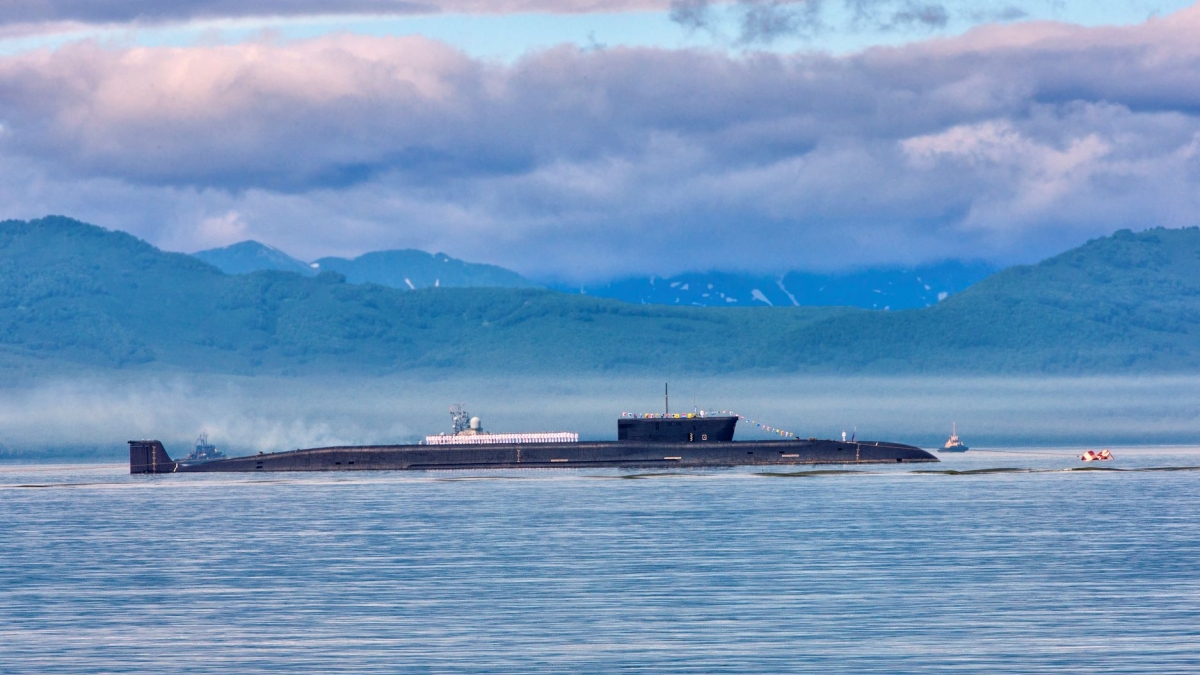PLuS Alliance initiative to support defense deal with US, UK, Australia

As part of a global effort to ensure peace and security in the Indo-Pacific region, Australia will become the seventh country in the world to acquire nuclear-powered attack submarines.
That move is part of a historic security partnership created a year ago among the United States, Australia and the United Kingdom, called AUKUS, intended to strengthen and share advanced defense capabilities, including helping Australia develop long-range subs powered by nuclear energy.
Now, an alliance of three top universities from those countries has stepped up to become “the intellectual engine” of AUKUS, providing research, educational offerings and events to support the deal.
Six years ago, Arizona State University joined King’s College London and the University of New South Wales to form the PLuS Alliance, a partnership to scale innovations in research and education for maximum public benefit.
The PLuS Alliance’s new initiative — Security & Defence PLuS — aims to be the intellectual engine behind AUKUS, according to Ryan Shaw, managing director of strategic initiatives and senior university advisor at ASU.
Shaw said that in the six years the PLuS Alliance has operated, it’s worked in the fields of public health, engineering and sustainability, but never in security or defense.
“That struck me as a greatly missed opportunity,” said Shaw, who came to ASU in 2019 after a career in the military.
Interest intensified last September when AUKUS was launched.
“The first major initiative of AUKUS was to equip Australia with nuclear subs to counter China in the Indo-Pacific, but it’s meant to be a more broadly scoped diplomatic and military partnership for a free and open Indo-Pacific,” he said.
“And it became clear that we should do what we can to contribute to that space.”
Security & Defence PLuS is launching with a trove of information. The website offers the AUKUS Briefing Book, which includes downloadable official documents and news stories.
The site also includes essays by military and diplomatic experts, including a short history on the thorny twists and turns of the submarine deal.
The AUKUS Briefing Book is based on “The NPT Briefing Book,” a long-running project by the Centre for Science and Security Studies at Kings College London that compiles documents and information about the Treaty on the Non-Proliferation of Nuclear Weapons.
“It’s really well known and respected among those who deal with that,” Shaw said.
“Every year, there’s a nuclear non-proliferation conference and it serves as the read-ahead preparation material.
“We imagine the AUKUS Briefing Book filling the same role.”
On Nov. 14, Security & Defence PLuS will hold the Advancing AUKUS Conference in Canberra with military, diplomatic and policy experts.
The AUKUS focus on providing Australia’s first nuclear-powered submarines is an opportunity, Shaw said.
“We want to position ourselves not just in academic research but at the intersection of industry and policy and academia,” he said.
“We want to provide workforce development and academic research in support of that.
“We can tackle these issues better together than separately and ensure they’re used for good and not for evil.”
Top image courtesy iStock/Getty Images
More Local, national and global affairs

ASU Lodestar Center supports Tucson's vibrant nonprofit sector with research, training
If all of the nonprofits in Arizona were grouped together as an industry, they would be the sixth-largest sector in the state in terms of economic impact — ahead of construction, transportation and…

ASU Library collection captures robust history of Arizona
Editor’s note: This is part of a monthly series spotlighting ASU Library’s special collections throughout 2024.Copper, cattle, cotton, citrus and climate.The so-called “five Cs” of Arizona…

ASU helps University of Guyana faculty earn doctoral degrees in expedited program
Shenella Benjamin and Norwell Hinds joined hundreds of other Sun Devils in receiving PhDs from Arizona State University this week, but their journeys were unique.Benjamin and Hinds, both of whom are…